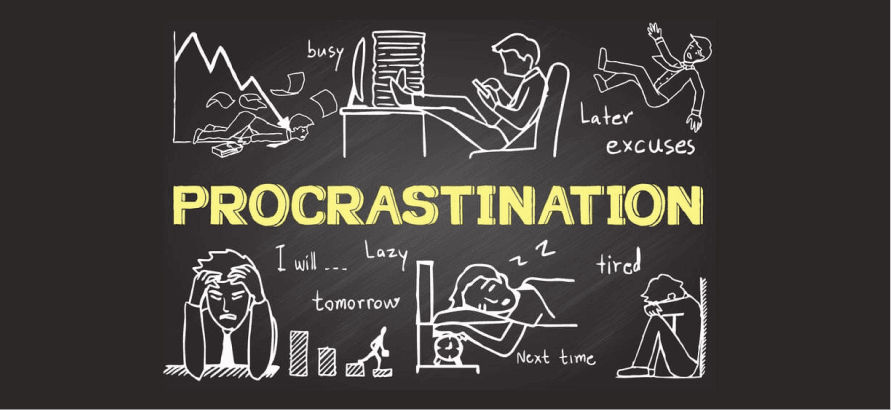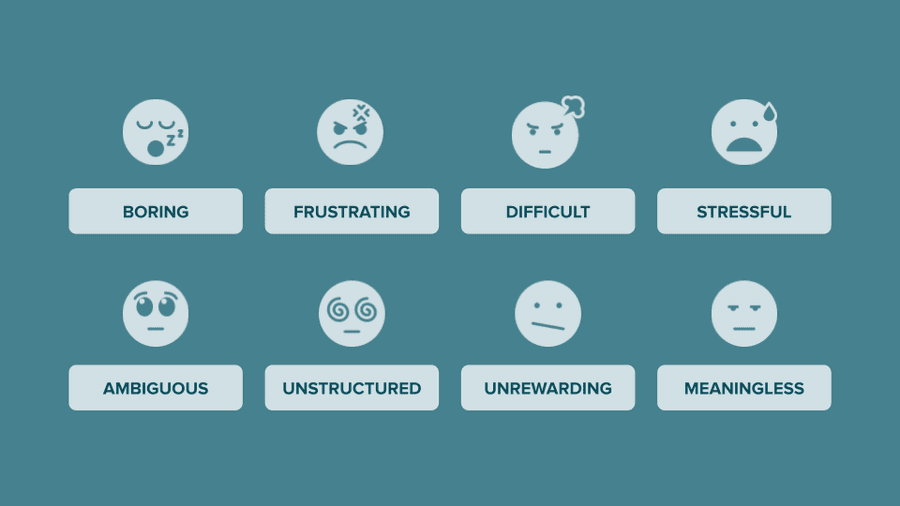Why you procrastinate
Procrastination is fundamentally an emotional reaction to what you have to do. The more aversive a task is to you, the more you’ll resist it, and the more likely you are to procrastinate.
Aversive tasks tend to: be boring, frustrating, difficult, lack intrinsic rewards, be ambiguous and unstructured.
6.75K
36.4K reads
CURATED FROM
Here's why you procrastinate & tactics that will help you stop
alifeofproductivity.com
12 ideas
·258K reads
IDEAS CURATED BY
Always appreciate the time you get, because you never know how much longer it`ll last.
The idea is part of this collection:
Learn more about timemanagement with this collection
Cultivating self-awareness and self-reflection
Prioritizing and setting boundaries for self-care
Practicing mindfulness and presence
Related collections
Similar ideas to Why you procrastinate
Make a task less aversive
When you notice yourself procrastinating, use your procrastination as a trigger to examine a task’s characteristics and think about what you should change.
By breaking down exactly which attributes an aversive task has (boring, frustrating, difficult, meaningless, ambiguous...
Procrastination: why we struggle to start
Procrastination is delaying an intended course of action despite expecting negative consequences for the delay.
Possible causes for procrastination:
- Task unpleasantness. Boring, frustrating and aversive tasks.
- Se...
Why you procrastinate
Researchers found four phases we go through to do a job:
- Inception: Decide to get started
- Planning: Decide how to complete the task
- Action: Perform the steps
- Termination: D...
Read & Learn
20x Faster
without
deepstash
with
deepstash
with
deepstash
Personalized microlearning
—
100+ Learning Journeys
—
Access to 200,000+ ideas
—
Access to the mobile app
—
Unlimited idea saving
—
—
Unlimited history
—
—
Unlimited listening to ideas
—
—
Downloading & offline access
—
—
Supercharge your mind with one idea per day
Enter your email and spend 1 minute every day to learn something new.
I agree to receive email updates

